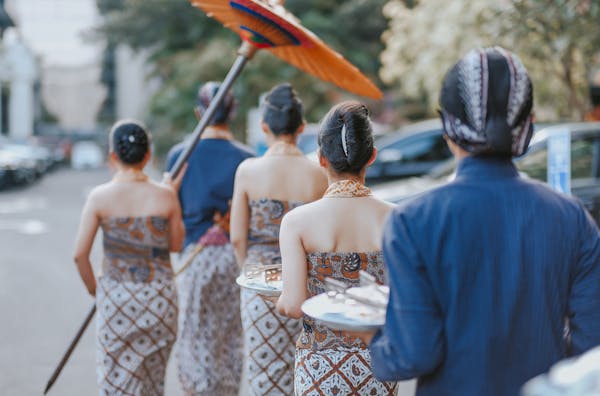
Introduction: Navigating Cultural Boundaries
In a world becoming increasingly interconnected, understanding and respecting cultural boundaries is paramount, especially in a diverse and culturally rich country like Indonesia. This article aims to delve into the nuances of Indonesian culture, highlighting taboos, and emphasizing the importance of cultivating cultural sensitivity for fostering harmonious connections.
The Rich Mosaic of Indonesian Culture
Diversity Beyond Compare
Indonesia, with its 17,508 islands, is a tapestry of diverse cultures, languages, and traditions. From the bustling streets of Jakarta to the serene landscapes of Bali, each region boasts a unique identity. To navigate the cultural landscape successfully, it’s essential to recognize and celebrate this diversity.
The Role of Religion
Religion plays a pivotal role in Indonesian society, with Islam being the predominant faith. Understanding the religious practices and customs is crucial for seamless interaction. From the call to prayer echoing through the archipelago to the vibrant festivals, religion weaves its influence into the fabric of everyday life.
Navigating Taboos: A Delicate Balancing Act
The Unspoken Rules
Indonesia, like any other country, has its set of taboos, and understanding these unspoken rules is key to respectful engagement. Touching the head, for example, is considered disrespectful, as the head is considered the most sacred part of the body. Similarly, it’s crucial to avoid pointing with your feet and using your left hand for greetings.
Respect for Elders
Respecting elders is deeply ingrained in Indonesian culture. Using appropriate titles like “Bapak” for men and “Ibu” for women shows reverence. By embracing these cultural norms, you not only convey respect but also create a positive impression.
Cultural Sensitivity in Everyday Interactions
The Power of a Smile
In Indonesia, a smile is more than a facial expression; it’s a communication tool. Whether facing a challenge or expressing joy, a smile can convey a myriad of emotions. Understanding the subtleties of non-verbal communication helps in building genuine connections.
Embracing Local Cuisine
Food is a universal language, and in Indonesia, it’s a celebration of diverse flavors. Exploring local cuisine not only pleases the palate but also showcases your willingness to immerse yourself in the culture. From rendang in Sumatra to nasi goreng in Java, every dish tells a story.
Conclusion
In the vibrant tapestry of Indonesia, respecting taboos and cultivating cultural sensitivity are the keys to harmonious connections. As we navigate the diverse landscapes of this archipelago, let us remember that true understanding transcends borders, fostering a world where differences are celebrated, and connections are built on a foundation of respect. So, as you embark on your journey through Indonesia, embrace the richness of its culture, and let the spirit of unity guide your way.
